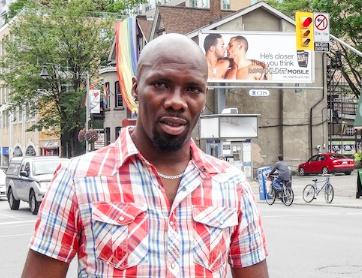Gareth Henry is steering clear of all Toronto celebrations marking the 50th anniversary of Jamaica’s independence.
Henry fled the island, his homeland, more than four years ago and found refuge in Canada. “There is no cause for celebration,” he says.
“How can we celebrate 50 years of independence when people are still being marginalized?” asks Henry, who was the international grand marshal in Toronto’s 2008 Pride parade.
Celebrating the anniversary – Jamaica gained independence from Britain on Aug 6, 1962 – goes against everything Henry believes in because of ”the homophobia and the state-sanctioned violence” he experienced when he lived there.
Jamaica has been called one of the most unabashedly homophobic countries in the world. Homophobia is prevalent in the country’s popular culture and in politics.
And then there’s the deadly violence and other forms of discrimination. Last year the International Gay and Lesbian Human Rights Commission called conditions for lesbian, gay, bisexual and trans people in Jamaica “dire,” reporting that homophobic violence is on the rise.
Between January and June 2011, the group said 51 incidents, including mob attacks, physical abuse, home evictions and discrimination, were reported.
Meanwhile, in July, Human Rights Watch sent a letter to Prime Minister Portia Simpson-Miller, calling on her to repeal the country’s anti-buggery law and protect queer people from discrimination. The law criminalizes homosexuality with a maximum sentence of 10 years.
“Since our report, attacks on homosexual people or people perceived as being homosexual or transgender appear to remain commonplace,” wrote Boris Dittrich, the advocacy director for the organization’s LGBT rights program.
Henry, 34, was formerly co-chair of Jamaican Forum for Lesbians, All-Sexuals and Gays (J-Flag) and says he knows such violence all too well – 13 of his friends were murdered, including his former roommate and J-Flag colleague Steve Harvey.
On Valentine’s Day 2007, Henry says, he and three other gay men were trapped inside a pharmacy after an angry crowd attacked the building and threatened them with violence. After police arrived on the scene, he escaped the mob’s violence, but not before police beat him.
“They slapped me in the head, they slapped me in the face, they gun-butted me in the abdomen twice, and they left me on the floor,” he says.
A few months later, while driving to work, two men approached his car window and threatened to kill him and burn down J-Flag.
That’s when Henry decided to flee Jamaica and find safety in Toronto.
Jamaica’s former assistant police commissioner Les Green recently scoffed at claims that homophobia is rampant, calling it “public hype,” according to the Jamaica Observer newspaper.
Green told the newspaper that while gays and lesbians may have been marginalized in the past, Jamaicans have become much more tolerant over the years.
Green then blamed gay people for drawing unwanted attention.
“I am not into gaybashing, but the problem is crossdressing and going downtown. Do they do that to create a media blitz? That just seems too contrived,” he said.
And his explanation for the numerous murders of queer people over the years? He called them “domestic situations.”
There was one exception, he said: the murder of activist Steve Harvey, Henry’s former roommate. Green said the motive was robbery.
“The safest card for the police is to say it’s a jealous lover,” Henry says.
“I can safely say, and I’ll challenge any police officer and I’ll challenge the state on these 13 counts [the murders of his 13 friends], that we know these were not lover-on-lover situations or jealous rage. For me it was acts of hate crimes because of a person’s sexuality.”
Henry says Green contradicts himself when on the one hand he claims Jamaican society is becoming more tolerant, yet on the other hand, he says a gay man is putting himself at risk if he appears in public acting flamboyantly.
Henry, who is now an engagement coordinator with PWA, has permanent resident status and hopes to be up for citizenship in December. He’s made a home in Toronto with his husband of two years; they celebrated their wedding anniversary on Aug 13.
“I still perceive Jamaica as a great place, a beautiful country,” Henry says. “A lot of potential, as you can see by the Olympics. But we are as equally good as we are equally bad. And the bad is around addressing the broad issues of human rights. And we have failed there miserably as a nation.”

 Why you can trust Xtra
Why you can trust Xtra


